About the Series
Starting 10 October, WILDLABS and the Satellite Applications Catapult are proud to announce our new virtual course: Earth Observation 101. This four-part lecture series from Dr Cristian Rossi explores the technologies and the algorithms behind remote sensing and gives an overview of several applications using RS data, including practicalities about data access and processing.
Are you new to Remote Sensing, or want to know more about the applications of the technology? Then this series is for you! This series will give you the practical knowledge base you need to understand the current state of Earth Observation for Conservation and where the field is headed.
Remote Sensing (RS) is the science of obtaining information about the Earth’s physical, chemical, and biological systems without physical contact. It employs sensors that measure the electromagnetic radiation which interacts with land, ocean, and atmosphere. It is used in a diverse set of applications, such as forestry, agriculture, geology, hydrology, archaeology, meteorology, oceanography, zoology, glaciology, and many other disciplines.
RS history dates back over 200 years, with the first photographs capturing landscapes from balloons, kites and even pigeons. Many years later the systematic use of this technology was deployed for surveillance purposes during the two world wars. With rapid scientific progress, the global utilisation of this technology was finally reached in the 70s, with the development of satellites orbiting around the Earth and the establishment of several space agency programmes that provide useful data for research and development. Nowadays, many commercial companies own satellite constellations and the combined data availability from public and private sources is hitting global coverage with hourly acquisitions. This lecture series explores the technologies and the algorithms behind remote sensing and gives an overview of several applications using RS data, including practicalities about data access and processing.
This lecture series is free and allows you to move at your own pace with videos available to all on the WILDLABS YouTube channel. Course content will also be posted in this group so you can navigate through all the content, engage with other participants, and reach out to the course instructor directly.
To join this virtual course, register here!

The Series Schedule
- Part 1: How does it work? (10 October)
The first part of the lecture series is focused on exploring the physical fundamentals of the main two earth observation technologies: optical and radar. We will cover the remote sensing process, from data acquisition to result presentation; the main theoretical concept behind remote sensing imaging, i.e. the electromagnetic spectrum; and we finally will explore the basic properties of optical and radar imagery. - Part 2: What can it do? (17 October)
The second part of the lecture series is dedicated to present an overview of many applications where remote sensing data has been used. After a general overview, we will enter more in detail into applications using optical data, with an introduction to vegetation mapping, and finally into radar applications, where we describe the complementarity of these two technologies. - Part 3: How is it being used? (24 October)
The third part of the lecture series covers two specific case studies: an environmental one, i.e. the search for lithium in Cornwall, and a conservation one, i.e. the monitoring of wildlife corridors. The case studies are covered in depth, with a description of the remote sensing process behind them. - Part 4: How do I get started? (31 October)
The last part of the lecture series is the practical one. We will discover how to access earth observation data from both public and commercial providers; we will describe in detail the main public satellite missions; we will discover existing products generated with earth observation data and finally we will briefly describe available tools and platform for data processing.
Meet your course instructor
Dr Cristian Rossi - Satellite Applications Catapult & University of Oxford
Cristian Rossi received the B.Sc. and M.Sc. degrees in telecommunication engineering from the Polytechnic of Milan, Italy and the Ph.D. degree in remote sensing technology from the Technical University of Munich, Germany. He is currently the Geospatial Science Lead at the Satellite Applications Catapult, where he is coordinating with research and academic communities to ensure pull through of science to support organisation activities and he is technically leading several national and international projects focused on the exploitation of remote sensing data for land and ocean applications.
Among his other tasks, Cristian is also responsible of teaching about Earth observation data and algorithms through courses and seminars for industry and academia at all levels and he regularly supports business development and government operations. He is a Visiting Lecturer at the University of Oxford, and he is supervising data science PhD students. He is member of several scientific committees, including UKRI consultations for shaping future research funds, and several Centres for Doctoral Training steering boards. Before moving to the UK, he was a Research Scientist with the German Aerospace Center (DLR), where he was involved in the development of novel algorithms for Earth observation missions. His research interests are focused on data science for sustainable applications and climate change adaptation. He has authored or co-authored more than 90 publications in international journals, conferences, and book chapters.
No showcases have been added to this group yet.
WILDLABS & Wildlife Conservation Society (WCS)
I'm the Bioacoustics Research Analyst at WILDLABS. I'm a marine biologist with particular interest in the acoustics behavior of cetaceans. I'm also a backend web developer, hoping to use technology to improve wildlife conservation efforts.

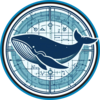
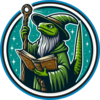

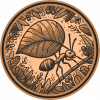
- 41 Resources
- 38 Discussions
- 33 Groups
- @carlybatist
- | she/her
ecoacoustics, biodiversity monitoring, nature tech
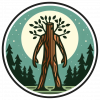


- 113 Resources
- 361 Discussions
- 19 Groups
- @Adu1996
- | Mr
Adu Mensah Junior is a climate scientist and geospatial data analyst with an MSc in Climate Change and GIS from Swansea University. He is passionate about youth-led climate action, urban sustainability, and climate philanthropy. His work focuses on using GIS and satellite data.
- 0 Resources
- 3 Discussions
- 3 Groups
WILDLABS & Fauna & Flora
I'm the Platform and Community Support Project Officer at WILDLABS! Speak to me if you have any inquiries about using the WILDLABS Platform or AI for Conservation: Office Hours.

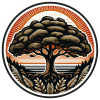

- 30 Resources
- 41 Discussions
- 6 Groups
- @joemuise
- | He/Him
I am a high school physics teacher who is always looking for interesting ways to engage students. This sometimes spills over to other fields where I can find applications of physics. I am currently working with a scientist on wavelength-specific light interactions with insects

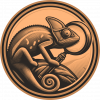
- 0 Resources
- 4 Discussions
- 5 Groups
Ocean Science Analytics
Marine mammal ecologist and online technical trainer



- 1 Resources
- 41 Discussions
- 10 Groups
My name is Sean Hill and I have been using off the shelf consumer drones and open source photogrammetry and Geographic Information Systems Software (GIS) since 2019 for conservation purposes. As of 2024 I have started an online training platform called GeoWing Academy



- 1 Resources
- 23 Discussions
- 6 Groups
- @sgmonthie
- | she/her
Sr. Instructional Designer with NASA ARSET program

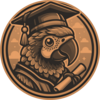
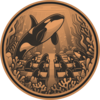
- 0 Resources
- 2 Discussions
- 2 Groups
- @ahmedjunaid
- | He/His
Zoologist, Ecologist, Herpetologist, Conservation Biologist





- 74 Resources
- 7 Discussions
- 25 Groups



- 0 Resources
- 0 Discussions
- 2 Groups
- 0 Resources
- 0 Discussions
- 5 Groups

- 0 Resources
- 0 Discussions
- 1 Groups
Is there really a sustainability data deficiency? We don’t think so.
29 February 2024
How Earth Blox reduced biodiversity impact analysis from 2 months to 1 hour for a global bank.
20 February 2024
Using geospatial data and the TNFD L.E.A.P approach to assess nature-related risks, impacts and opportunities in supply chains.
4 January 2024
This is a great chance for Wild Lab members to monitor species and their habitats across landscapes and seascapes with high-resolution satellite imagery.
14 December 2023
Article
Read our interview with Clementine Uwamahoro, African Parks’ Country Manager in Conservation Technology overlooking technology operations for both Akagera National Park and Nyungwe National Park.
29 November 2023
TagRanger® is a state-of-the-art wildlife finding, monitoring and tracking solution for research, conservation and environmental professionals. With superior configurability for logging data, reporting location and...
23 November 2023
Watch and read our interview with Dr. Kenneth Mubea, Capacity Development Lead at Digital Earth Africa, enabling the use of earth observations to address key conservation challenges across the African continent.
3 November 2023
With the rising threats to biodiversity such as wildlife crime, climate change and human-wildlife conflict today, wildlife monitoring technologies have become vital to study movement ecology, behaviour patterns, changes...
25 October 2023
Have you created a successful career in tech and are ready to do something good with your skills and experience? If yes, then join Open Earth's Earthshot mission to build open source digital systems and solutions to...
25 October 2023
Earth Blox makes dataset from Impact Observatory and Vizzuality available to Google Earth Engine developers via the #AwesomeGEECommunityCatalog
16 October 2023
We're delighted to announce that Connected Conservation Foundation and Airbus Foundation have today launched round 2 of the ‘Satellites for Biodiversity Award’.
2 October 2023
Careers
Could you be our next team member to help empower conservation through data and technology?
28 September 2023
November 2024
event
June 2024
April 2024
| Description | Activity | Replies | Groups | Updated |
|---|---|---|---|---|
| Hello WILDLABS Community, Ocean Science Analytics recently launched an ocean-focused course for those interested in learning how to... |
|
Geospatial, Conservation Tech Training and Education, Early Career, Earth Observation 101 Community | 5 days 23 hours ago | |
| Hi Jeremy, With a quick search I've found the paper linked below. It looks like equipments such as Livox MID are sufficient for plot-level analyses, but not for individual... |
|
Drones, Earth Observation 101 Community, Emerging Tech, Geospatial, Sensors | 2 years 4 months ago | |
| Hello EO101 community!We hope you have enjoyed the EO101 lecture series! With all four parts now available on the WILDLABS YouTube channel... |
|
Earth Observation 101 Community, Community Base | 2 years 9 months ago | |
| Hello EO101 Community!We'll be hosting a live chat on YouTube as part of our watch party of Part 4 on the WILDLABS YouTube channel.... |
|
Earth Observation 101 Community | 2 years 9 months ago | |
| Ok no problem! Let me know if you have trouble viewing one of the specific figures/diagrams clearly though and I can try reaching out to the speaker to see if they would be... |
|
Earth Observation 101 Community | 2 years 9 months ago | |
| Hello EO101 Community!We'll be hosting a live chat on YouTube as part of our watch party of Part 2 on the WILDLABS YouTube channel.... |
|
Earth Observation 101 Community | 2 years 9 months ago | |
| To start a completely new discussion, click the post button in the top menu then select the EO 101 community group to have the discussion appear here! |
|
Earth Observation 101 Community | 2 years 10 months ago | |
| Also this: "Earth observation for ecosystem accounting: spatially explicit national seagrass extent and carbon stock in Kenya, Tanzania, Mozambique and Madagascar" |
|
Earth Observation 101 Community | 2 years 10 months ago | |
| Hi Robin, you can watch full part 1 video after the premiere or the individual lectures anytime (details below)we have also set up a discussion thread if you have any comments or... |
|
Earth Observation 101 Community | 2 years 10 months ago | |
| For anyone interested we have decided to try a YouTube premiere for each part of the course. For the first part of the course visit our YouTube channel at 3:00pm BST on Monday 10... |
|
Earth Observation 101 Community | 2 years 10 months ago |
Online Ocean-Focused GIS Course
8 August 2025 2:53pm
Join us to turn environmental insight into real-world action
4 July 2025 12:38pm
Postdoc on camera trapping, remote sensing, and AI for wildlife studies
16 December 2024 9:52am
LEAPs and bounds
Biodiversity Data Engineer
Calling for applications for Round 3 of our Satellites for Biodiversity Award Grant
30 September 2024 5:22pm
4 reasons to consider TNFD for nature reporting
12 June 2024 1:52pm
New WILDLABS Funding & Finance group
5 June 2024 3:24pm
6 June 2024 1:38am
6 June 2024 4:16am
The Inventory User Guide
1 May 2024 12:46pm
Introducing The Inventory!
1 May 2024 12:46pm
22 July 2024 10:55am
23 July 2024 2:05pm
23 July 2024 2:53pm
Earth Blox dataset review: Meta Global Canopy Height (1m)
23 May 2024 7:23pm
27 May 2024 8:58am
Navigating corporate due diligence in the Voluntary Carbon Market
8 March 2024 4:36pm
26 March 2024 2:11pm
27 March 2024 10:56am
29 March 2024 9:13am
Machine Learning Postdoc Position, Understory
29 February 2024 11:56pm
Data data everywhere, but not a byte to use!
29 February 2024 7:13am
Scaling biodiversity scoring for supply chains aligned with TNFD
20 February 2024 9:44am
Ignite Labs: Space for Nature & Biodiversity Series
21 January 2024 2:46pm
Free Spatial Analysis Course: Going Places with Spatial Analysis
15 January 2024 9:42am
Free Live Training Seminar: Bring Your Imagery to Life with ArcGIS Reality
15 January 2024 9:32am
Assessing the biodiversity impact of palm oil facilities around the world
4 January 2024 12:07pm
1 day left to apply - Satellites for Biodiversity Award Scheme
14 December 2023 2:41pm
Data Viz Inspo for the Holidays
11 December 2023 8:42pm
Paving the Way for Women: LoRaWAN Technology in Akagera National Park with Clementine Uwamahoro
 Esther Githinji
and 1 more
Esther Githinji
and 1 more
29 November 2023 5:22pm
ICOTEQ launch TAGRANGER® system of products
23 November 2023 1:25pm
Democratising Access to Earth Observation Data, Saving Wildlife across East Africa with Digital Earth Africa's Dr. Kenneth Mubea
 Esther Githinji
and 1 more
Esther Githinji
and 1 more
3 November 2023 1:24pm
15 May 2024 10:16am
5 Trailblazing Wildlife Monitoring Tech Solutions across East Africa. What Monitoring Technologies are you using?
25 October 2023 12:40pm
Lead Data Engineer - Climate Solutions, Open Earth
25 October 2023 11:07am




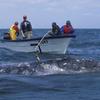

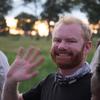
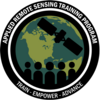



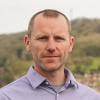

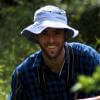









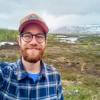


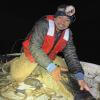


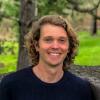

5 June 2024 4:14pm